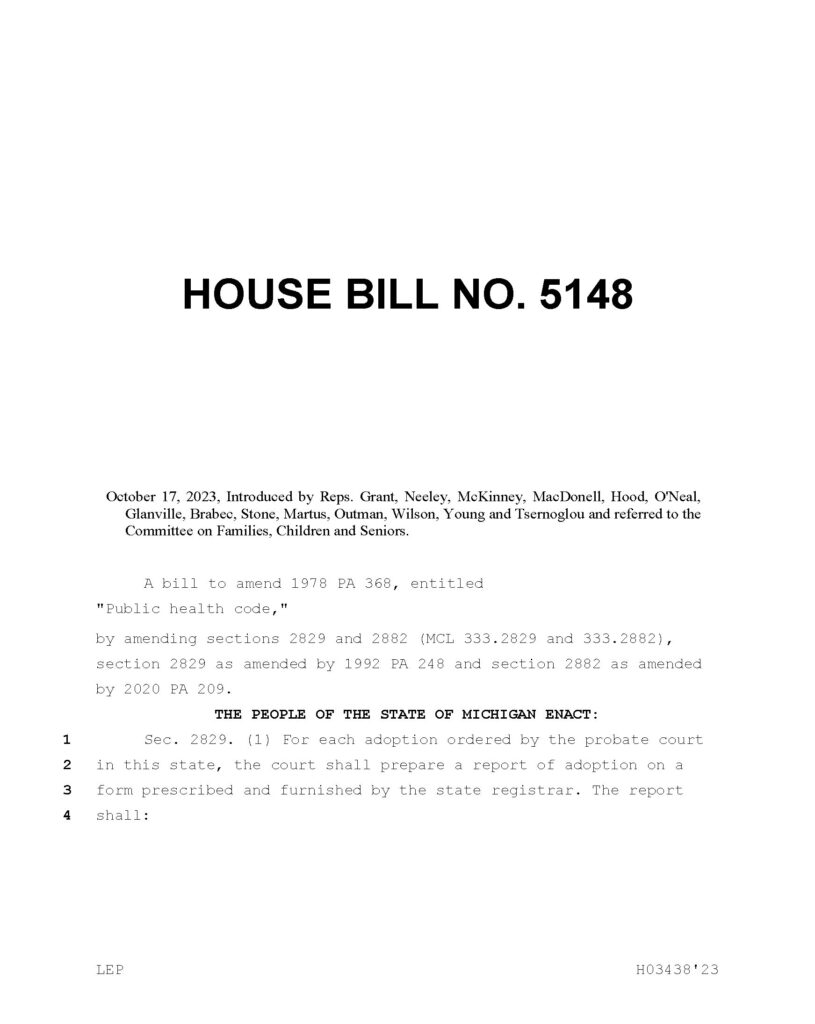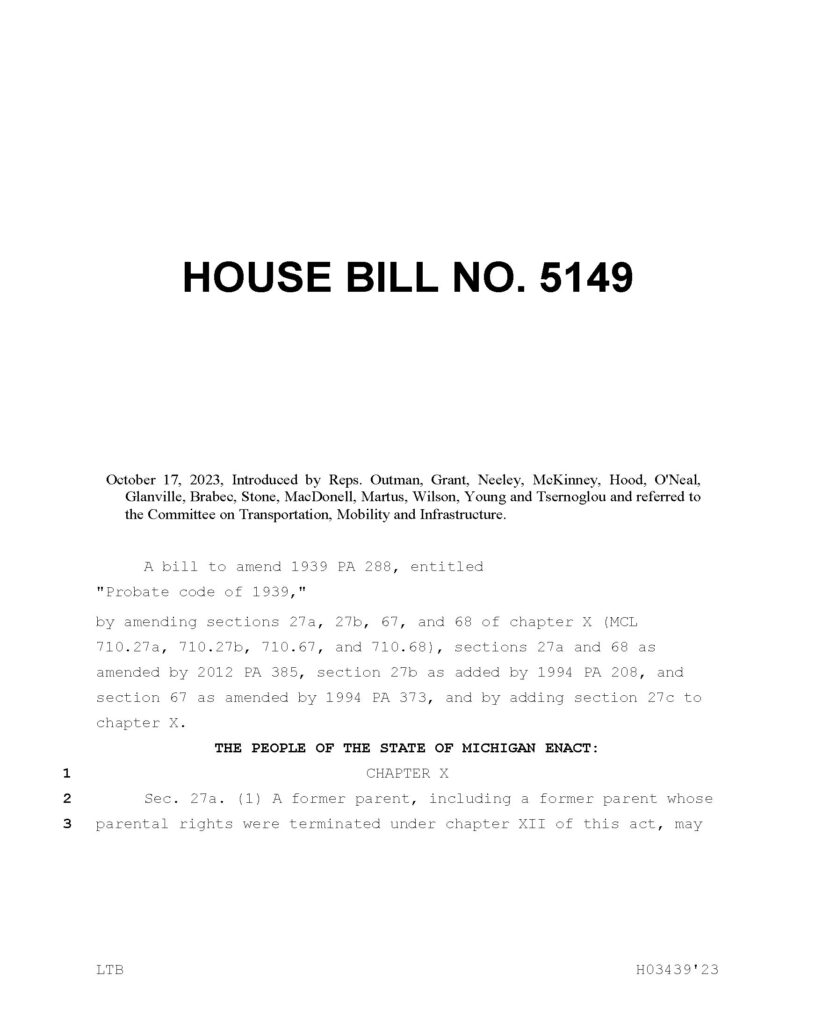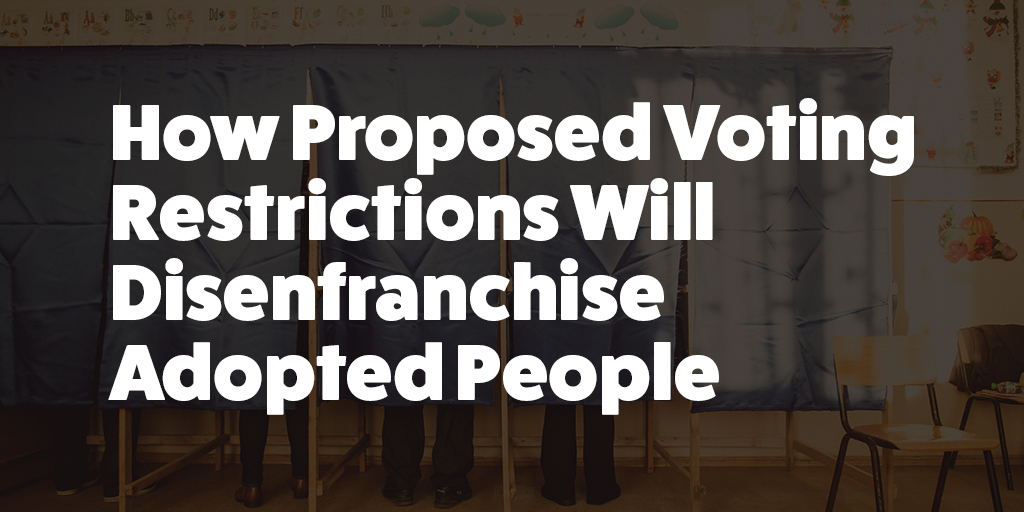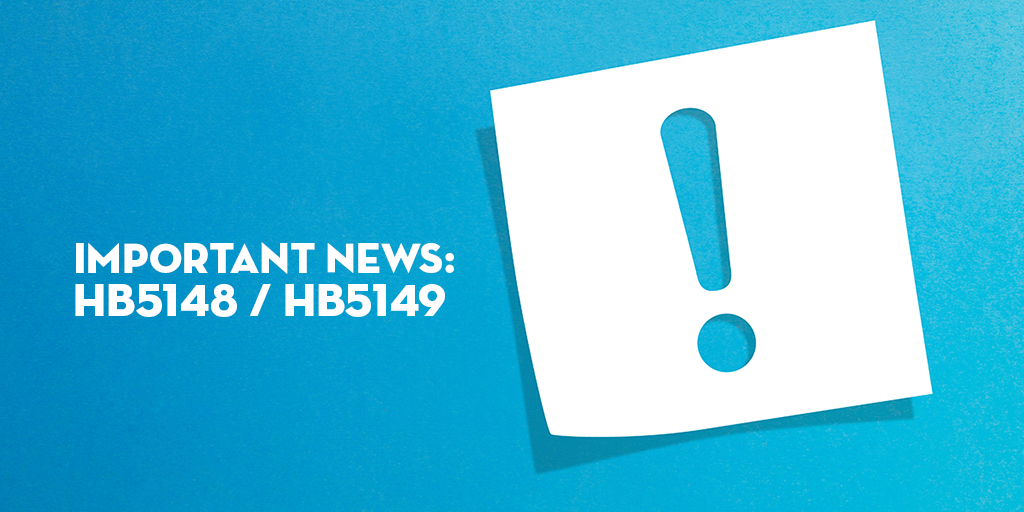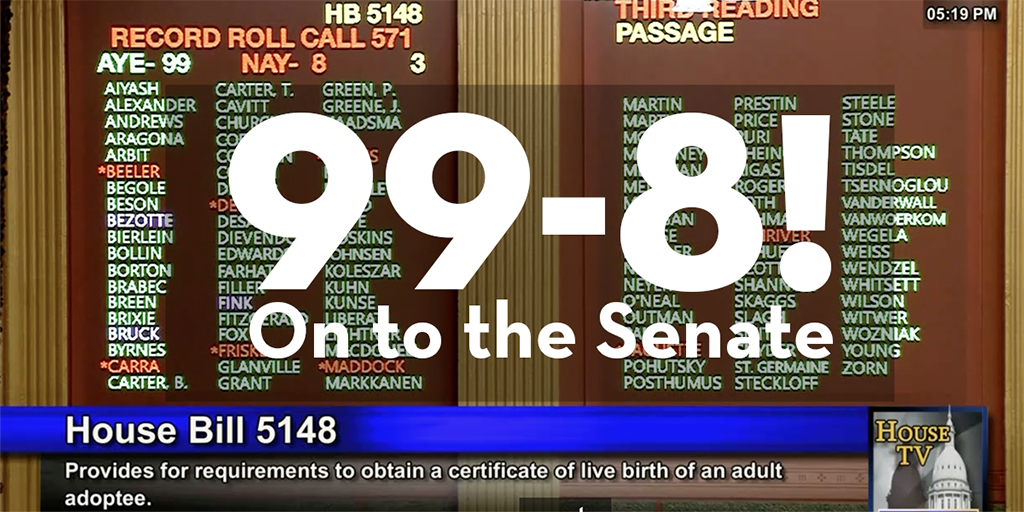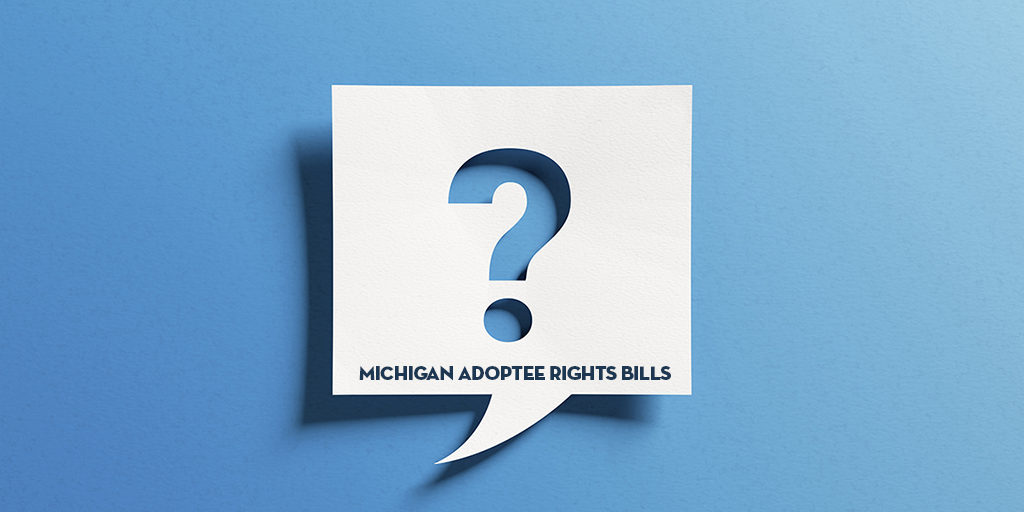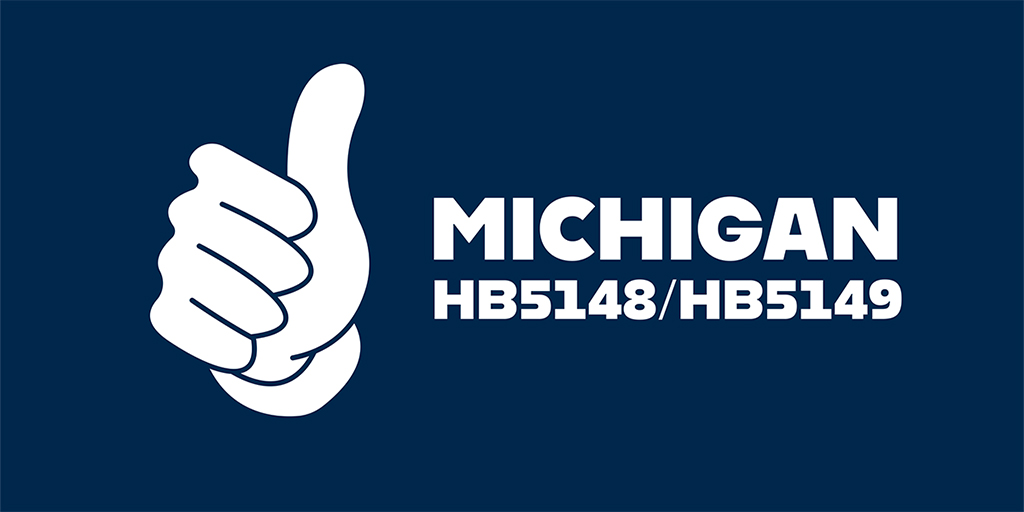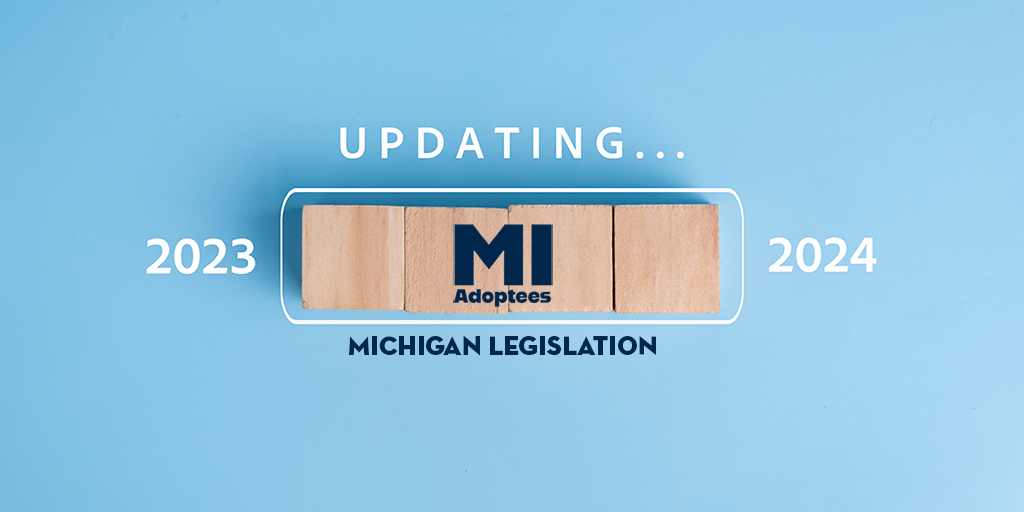Michigan legislators have introduced a bi-partisan legislative package that does one thing: restores the birth record rights of all Michigan-born adopted people. The hard work of enacting the bills is now in play.
HB5148: Deborah’s Law
HB5148, carried by Rep. Kristian Grant (D) amends Michigan vital records law so that all Michigan-born adult adopted persons and their descendants may request and obtain a copy of the adopted person’s original birth record. The requests will be made and fulfilled directly through the state registrar, without the need to involve the court or Michigan’s notoriously slow and ineffective Central Adoption Registry (CAR). The bill is called “Deborah’s Law” in honor of Rep. Grant’s mother, who is a Michigan-born adoptee. It has been referred to the Family, Children and Seniors Committee.
HB5149
HB5149, carried by Rep. Pat Outman (R) severs the the state’s Central Adoption Registry from controlling the release of pre-adoption birth records, while at the same time repealing the differential treatment of adoptees based on the date that parental rights had been terminated. While HB5149 has been referred initially to the Transportation, Mobility and Infrastructure Committee, it is believed it will be re-reffered to the correct committee, which is Children, Family and Seniors.
The bill package reflects a long grassroots process to assure bipartisan support for an unrestricted equal rights bill. It also reflects the patient leadership and commitment of Rep. Grant and Rep. Outman.
To keep up to date or to get involved in the effort sign up here.
Resources and Information
- HB4158/HB4159: An Overview
- FAQ: Michigan’s Adoptee Rights Bills
- Current Michigan Law: The Basics
- Resources: Print Materials
How a Legislator’s Proposed Voting Restrictions Will Disenfranchise Adopted People
A legislator’s effort to enact strict proof-of-citizenship voting requirements will disenfranchise thousands of Michigan adoptees. Here’s how.
Continue Reading How a Legislator’s Proposed Voting Restrictions Will Disenfranchise Adopted People
MARC Pauses Support for the Bills
As a coalition we have decided to withdraw support for HB5148/HB5149
House Passage!
The Michigan House of Representatives passed HB5148/HB5149 on November 9, 2023, by a vote of 99-8-3.
FAQ: Michigan’s Adoptee Rights Bills
Questions and answers about the two new adoptee rights bills in Michigan.


